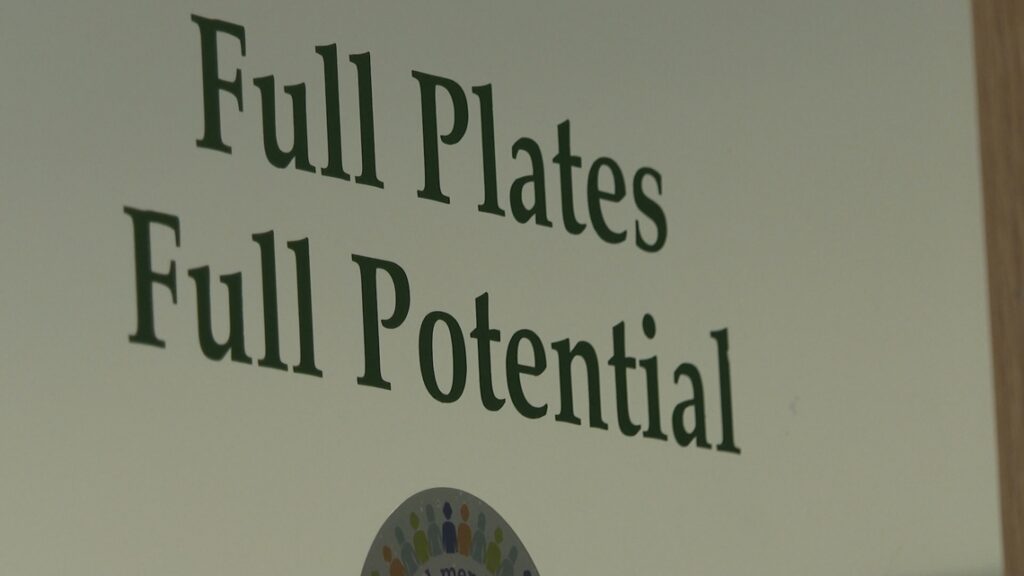Full Plates Full Potential will apply for federal funding to help seven local organizations implement specific food projects.
BRUNSWICK, Maine — Maine school districts will soon receive increased funding for providing healthy, locally sourced meals.
The nonprofit organization Full Plates Full Potential has been awarded a $7.4 million School Food System Innovation Grant as part of the U.S. Department of Agriculture’s Healthy Eating Initiative.
The Brunswick-based organization will distribute funds to seven local organizations working on projects to reimagine the local food system — such as supporting farm-to-school and sea-to-school initiatives — to “incorporate more local ingredients into school cafeterias,” the nonprofit said.
According to Full Plates, these grants have six main objectives:
Strengthening Maine’s food supply chain, increasing the sourcing and use of Maine foods in school lunch programs, addressing barriers in schools, providing support to school nutrition teams, fostering lasting partnerships, and establishing sustainable solutions for local food system best practices.
Executive Director Justin Strasburger said these grants will help local nonprofits collaborate and share best practices toward the goal of eliminating child food insecurity.
Strasburger said Full Plate Full Potential’s mission is to work toward “true systems change” so the organization doesn’t need to exist and child food insecurity is no longer an issue in Maine.
“The statistics we’re working with are that one in five children face food insecurity. The reality is probably much higher than that. It’s really sad,” Strassburger added.
Strasburger said child hunger exists in every community in Maine, whether it’s visible or not. By supporting their local food pantries and school-based programs, everyone in Maine can help families in need, Strasburger said.
Strasburger said Maine’s free school lunch program has put the state on the map, which is one of the reasons the USDA awarded the money to the Maine organization. He said it’s a great program, but school districts need to meet the health and religious needs of their students, and the grant helps them do that while also supporting local farmers and fishermen.
The seven organizations will be awarded between $100,000 and $1 million in funding. Details of the groups receiving funding and their projects were announced via a news release.
Good Grains on the Go (Skohegan, Maine) will pilot locally produced, value-added “convenience foods” that will appeal to students, such as pizza, calzones and other whole-grain-based breakfasts and lunches made with Maine-grown grains and other locally sourced ingredients.
The Halal Meal Production Hub (Unity, Maine) will pilot and develop culturally responsive, Halal-certified cooking methods to provide value-added school meals using locally sourced ingredients.
Streamlining Access to Maine-Grown K-12 Products (Maine Unity) will expand existing efforts to aggregate and distribute high-quality, locally grown foods to Maine schools using a centralized online ordering system and collaborative delivery infrastructure.
Fishermen Feeding K-12 Mainers (Brunswick, Maine) will expand an existing program that delivers local fish to schools and will also pilot and develop local, value-added seafood products for Maine schools.
School-Based Food Hub (Auburn, Maine) will establish a collaborative, regional school meal processing and distribution hub in the Lewiston-Auburn area.
Somerset County Farm to School Initiative (Skohegan, Maine) builds on an existing partnership between Somerset County local schools, Somerset Public Health and the Somerset County Jail, starting with seedlings planted by students and supplying the school with local food grown, harvested and processed by inmates.
The Local Food Switchboard (statewide) will create an online local food hub and database to strengthen connections within Maine’s local food system to increase local food processing capacity, expand distribution channels, and ultimately get more local food into Maine’s schools.
Funds must be used by June 28, 2028.
Strasburger said more information will be released this fall as the project begins to take shape.
RELATED: Bath YMCA’s ‘Veggie Bang’ expands to close gap for Midcoast kids
RELATED: All Maine students now eligible for free lunch without applying; how that affects poverty data


